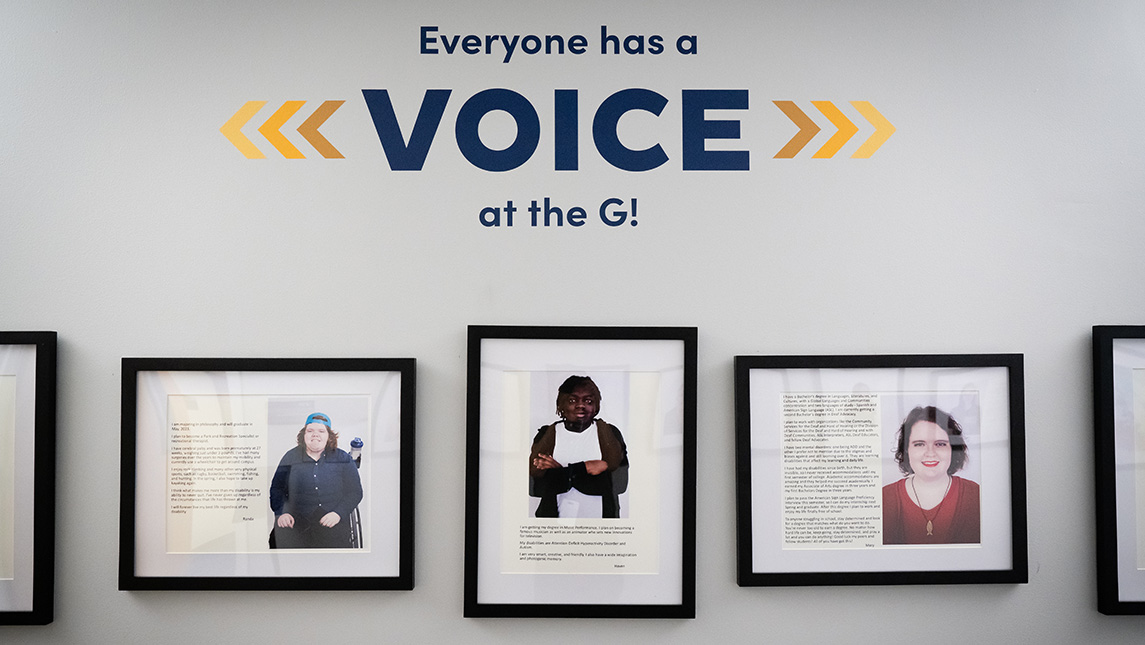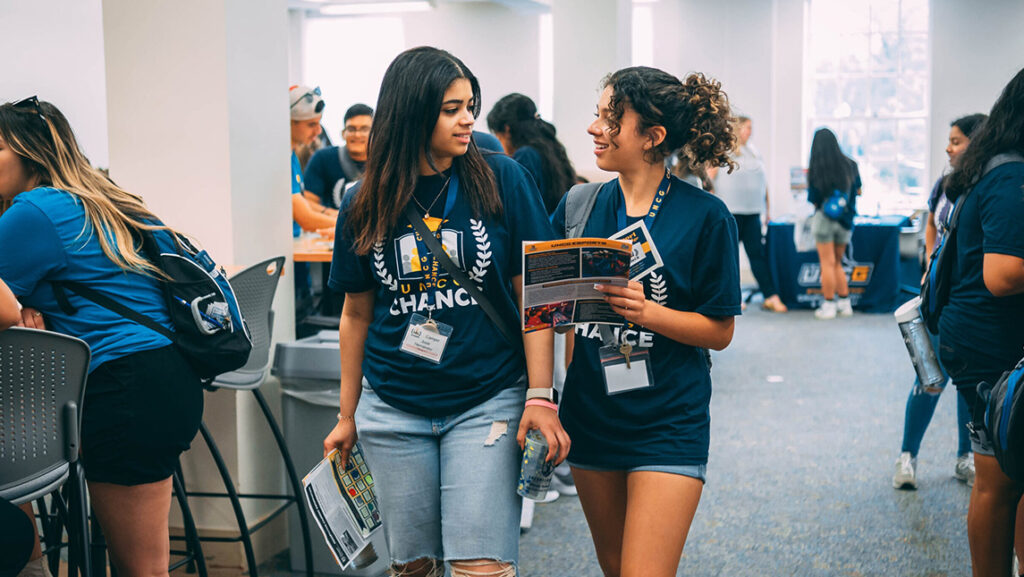UNC Greensboro’s iBelong project grants continue to give students, faculty, and staff an opportunity to form a more inclusive campus climate.
The UNCG iBelong project started in 2019 with a survey intended to find out how the university can better promote inclusivity on campus. In 2021, 53 percent of students agreed that “I feel like I belong at UNCG.” In the most recent 2023 survey, that number went up to 69 percent.
This year, the Division of Student Affairs awarded funding to a record 24 iBelong projects. The grant recipients began work on their projects at the beginning of the 2023 spring semester and say their efforts have been rewarding.
DISABILITY DOES NOT DEFINE ME
The Zeta Phi chapter of Delta Alpha Pi (DAPi) set out to help change the perception of students, faculty, and staff with disabilities through their “More Than My Disability” campaign. The honor society, which recognizes academic achievement for students with disabilities, invited campus community members to have their photo taken in January and then share information about themselves to shed the stigma around disability. The photos are now on display outside the Dean of Students Office in the Elliott University Center (EUC).
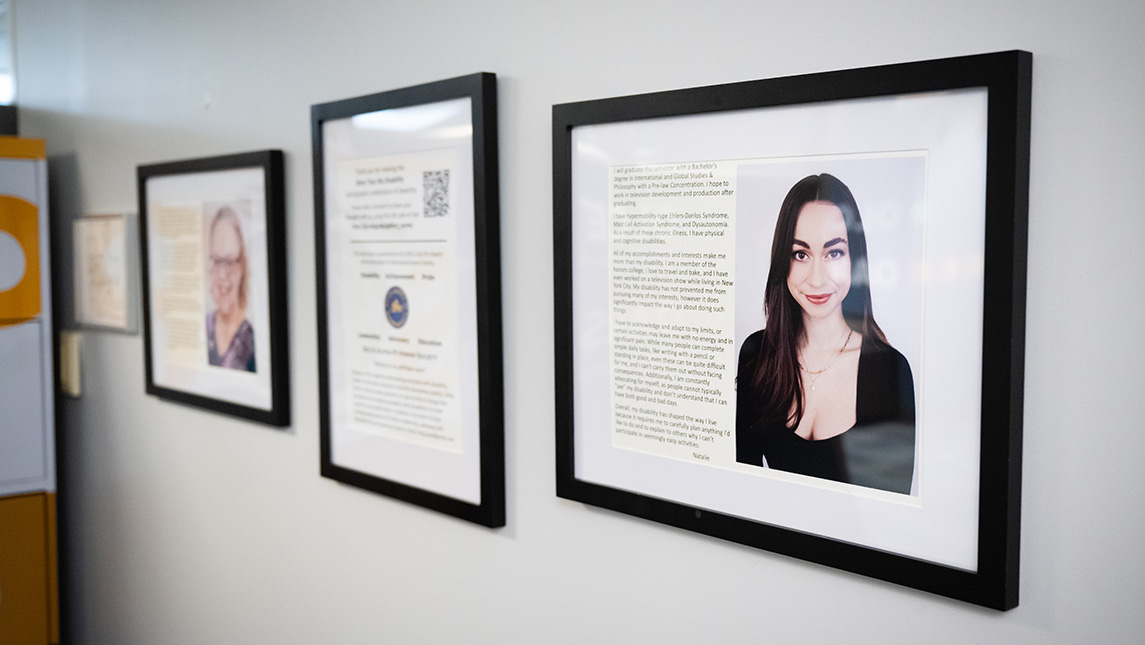
“I think it’s really powerful to hear peoples’ stories and how they see themselves as more than their disability,” says Rose Ewald, the treasurer of the Zeta Phi chapter of DAPi. “The common theme was ’my disability is not what defines me’.”
Natalie Adams, the president of the Zeta Phi chapter of DAPi, says it was good to see not only students taking part in the campaign but faculty and staff as well. She says it showed people with disabilities they are not alone.
“There is such a large community of people with disabilities and chronic conditions on campus,” says Adams, a senior double majoring in liberal and interdisciplinary studies with a concentration in international and global affairs and development, along with philosophy. “We took the demographics of all the participants, and the majority of them do have invisible disabilities.”
Both Adams and Ewald say their next goal is to increase the opportunities for social activities for people with disabilities on campus and work on disability training for the larger UNCG community.
A SPACE TO CONNECT
Senior Maya Hayes wanted to use her iBelong project grant to make sure Black women feel a sense of belonging at UNCG.
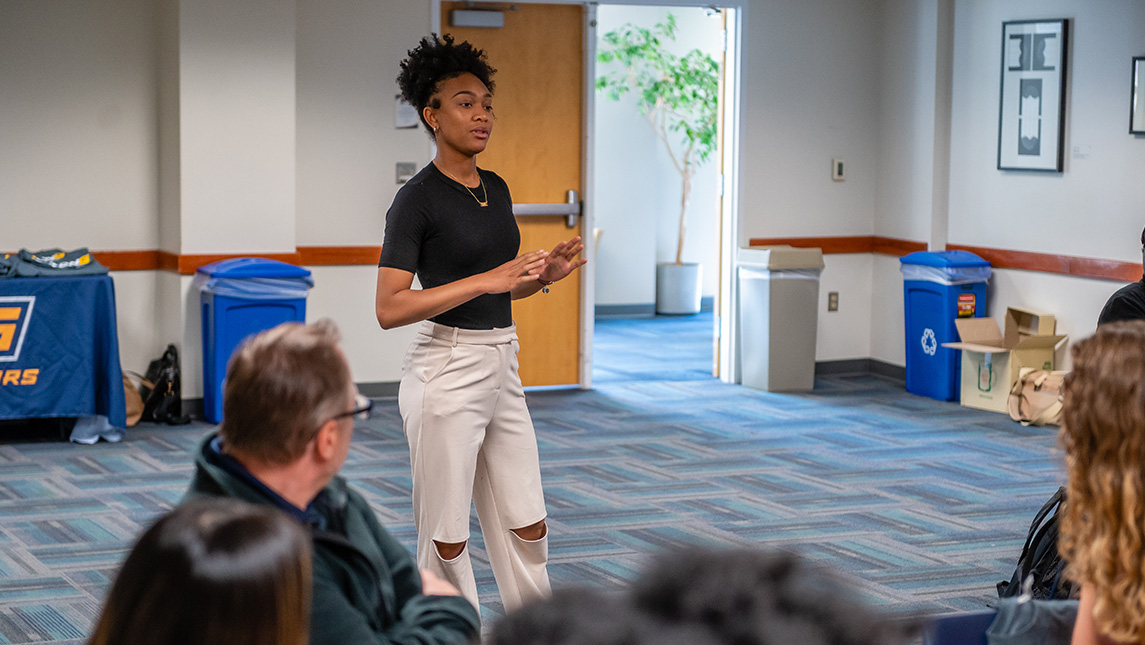
“UNCG does a great job overall of advocating for diversity and making everyone feel included,” says Hayes, who is studying social work. “I saw the need for something specifically for Black females.”
Her iBelong project, Crowned Success, is a series of events for the Black female community to help them with life after college. The events focused on professionalism, financial literacy, and mental health issues. Hayes worked on the project as an intern for On Earth Peace, a Maryland-based non-profit organization focused on nonviolence education.
“It created a space of connecting with each other,” says Hayes. “I noticed students interacting with each other outside of my events when they didn’t know each other before.”
Hayes says the events gave Black female students a place where they felt heard.
“I created a safe space for students to be open and say things that they’ve never said before – in terms of how they feel, how they’ve been treated at UNCG, or how they can get more out of UNCG,” says Hayes.
TOUGH CONVERSATIONS
“Sometimes belonging means addressing harm before it happens and having tough conversations with people before they might hurt somebody else,” says Megan Karbley with the Title IX office at UNCG.
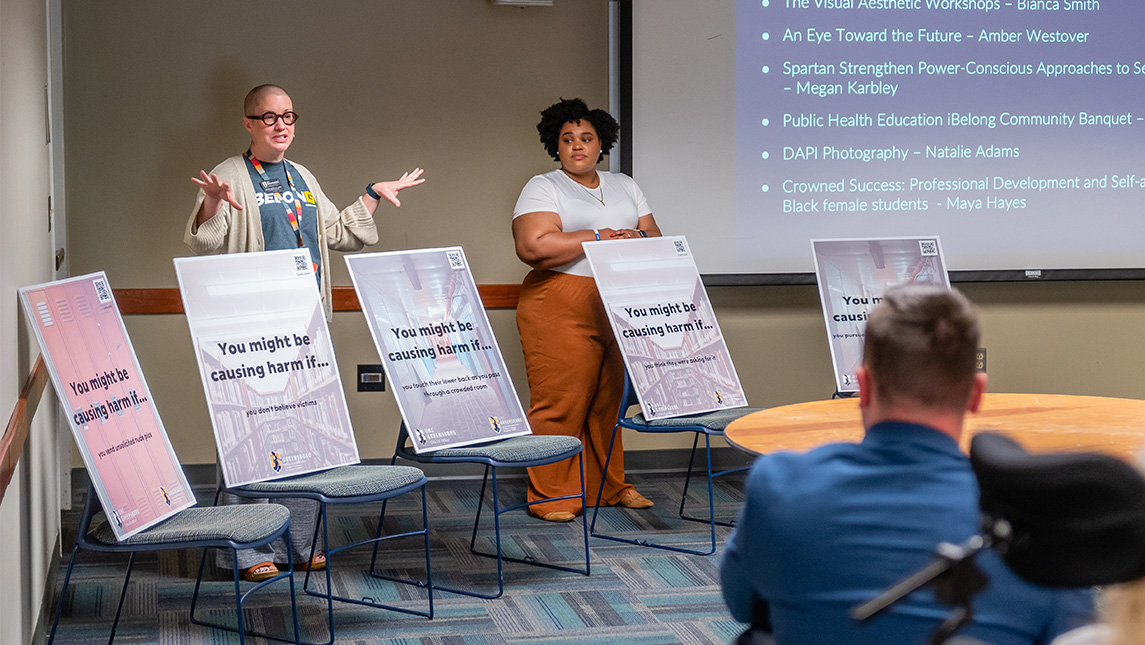
In partnership with the Campus Violence Response Center, the Title IX Office hosted a five-week program for students to learn about power-conscious approaches to sexual violence prevention, with an emphasis on exploring the historical context of sexual violence, intersections of race, and focusing on harm-doing rather than how to avoid being harmed.
Karbley says their group was unintentionally made up of all international graduate students who, she says, connected with the issue or sexual violence as both UNCG and global communities.
“The students felt a greater sense of belonging because they were able to have really meaningful, not surface level, conversations with other students about sexual violence and the way they view it as students at UNCG,” Karbley says.
The culmination of the program was a poster campaign for Sexual Assault Awareness Month in April for which the students designed posters based on discussions throughout the five weeks.
FEELING LIKE HOME
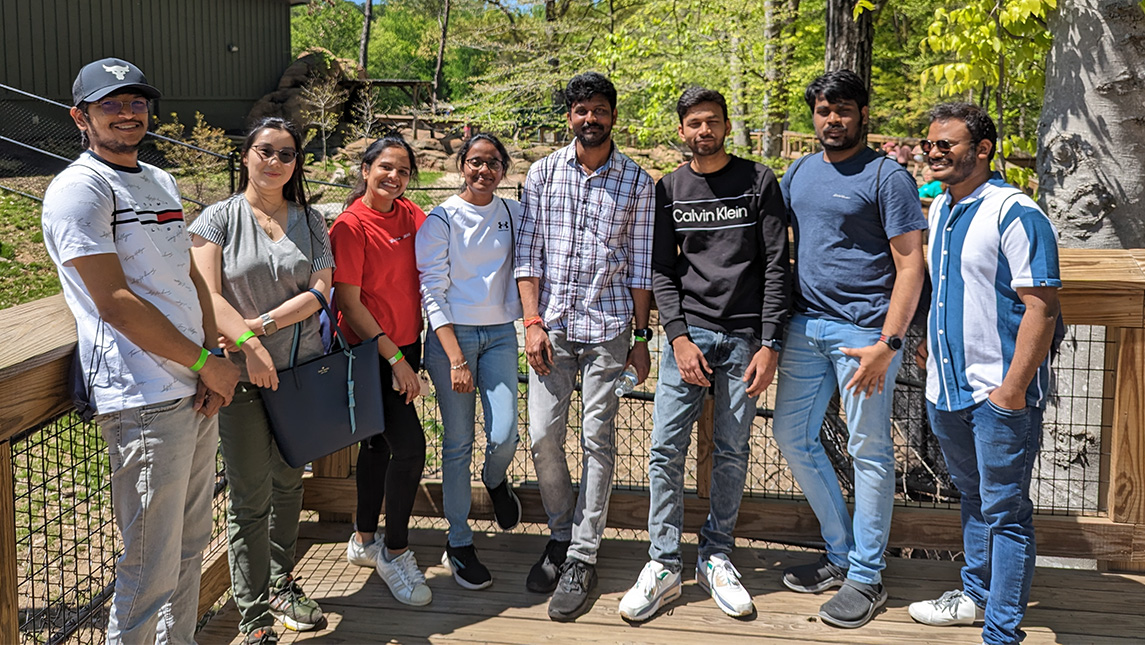
Photo credit: Gnananjali Ramineni
Coming to a new country can be difficult – even just as a tourist – but coming to study at a university can be even more challenging. When former UNCG Japanese Club and Korean Student Association President Liam Kim-Martin ’22 heard directly from international students about their struggle to belong, they began work on an iBelong project.
Kim-Martin connected with the International Programs Center (IPC) and the International Student Association (ISA) to form a wider support network for international students.
Thanks to the iBelong grant funding, students were able to go on two local field trips to the Weatherspoon Museum and the Greensboro Science Center.
“The students learned more about each other while having fun on our trips. So many international students don’t know each other,” says Gnananjali Ramineni, the president of the ISA. “This was a platform for them to connect with one other.”
Ramineni, an international graduate student from India studying IT & Management with a concentration in cybersecurity looks forward to what the next semester will bring.
“I think next semester will be even better,” she says. “I already feel at home because of ISA.”
Story by Avery Craine Powell, University Communications
Photography by Sean Norona and David Lee Row, University Communications
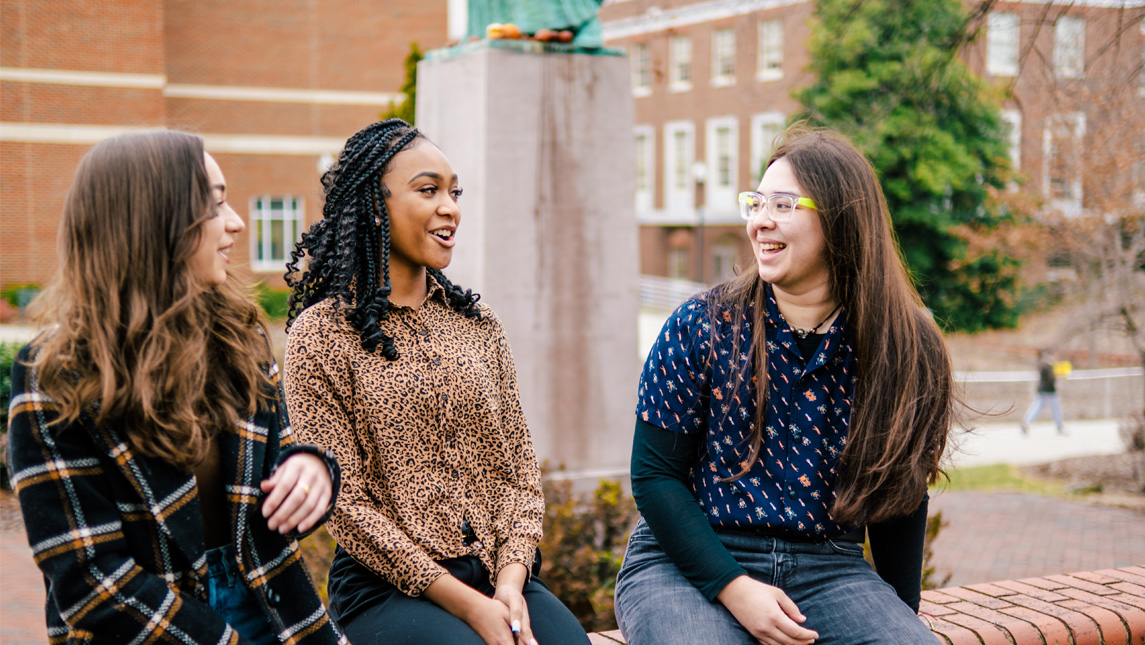
FIND WHERE YOU BELONG AT UNCG
